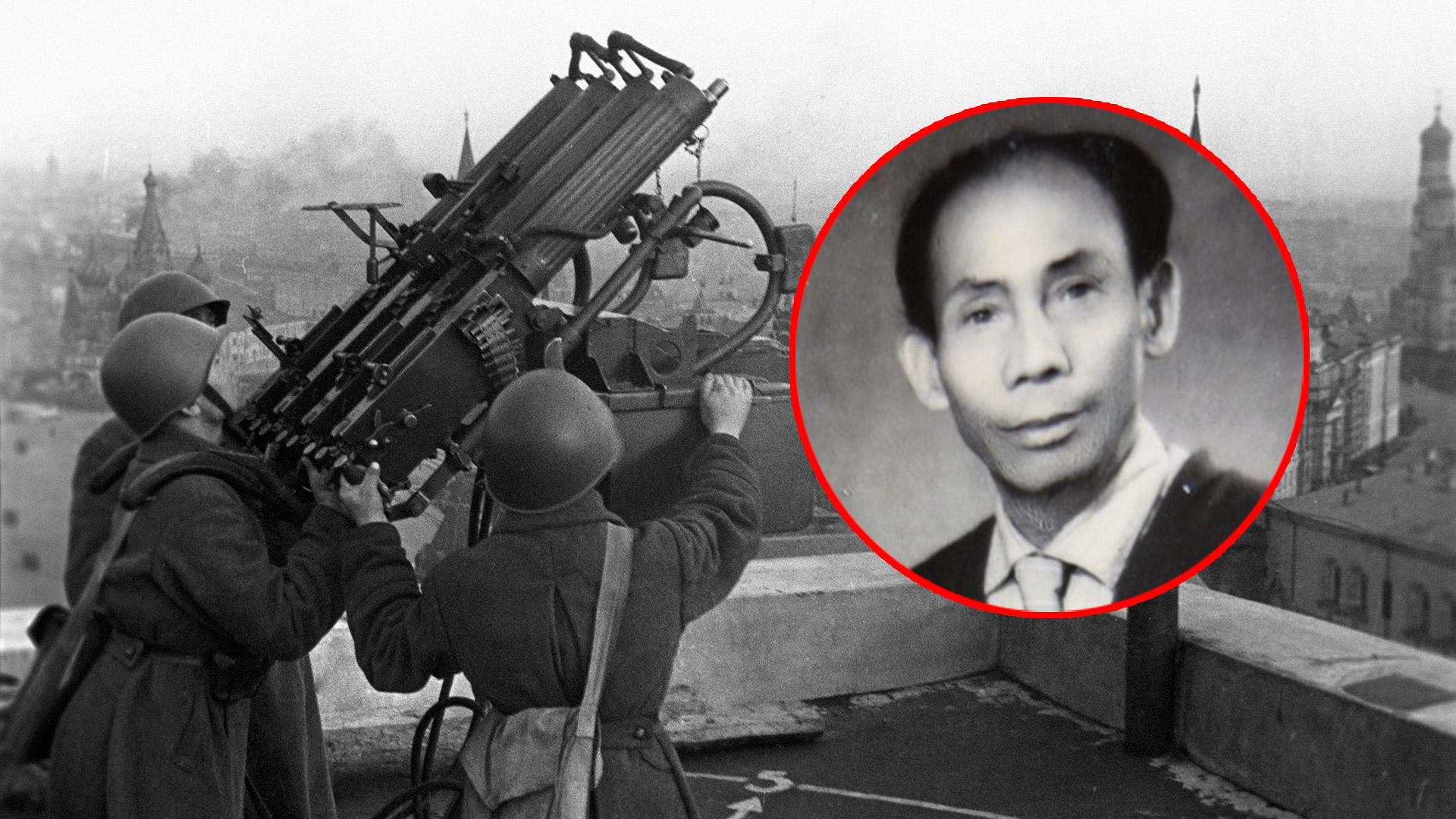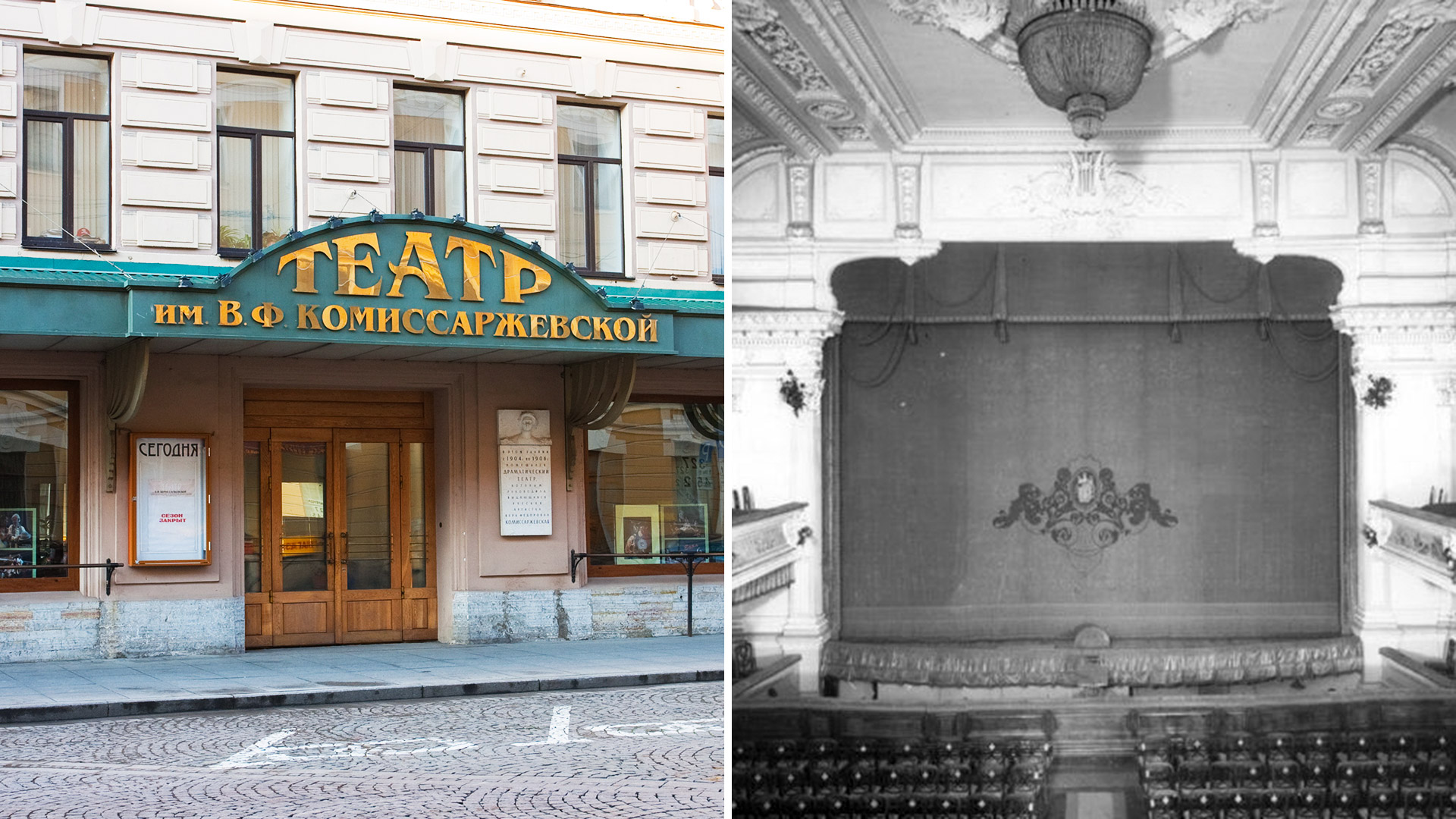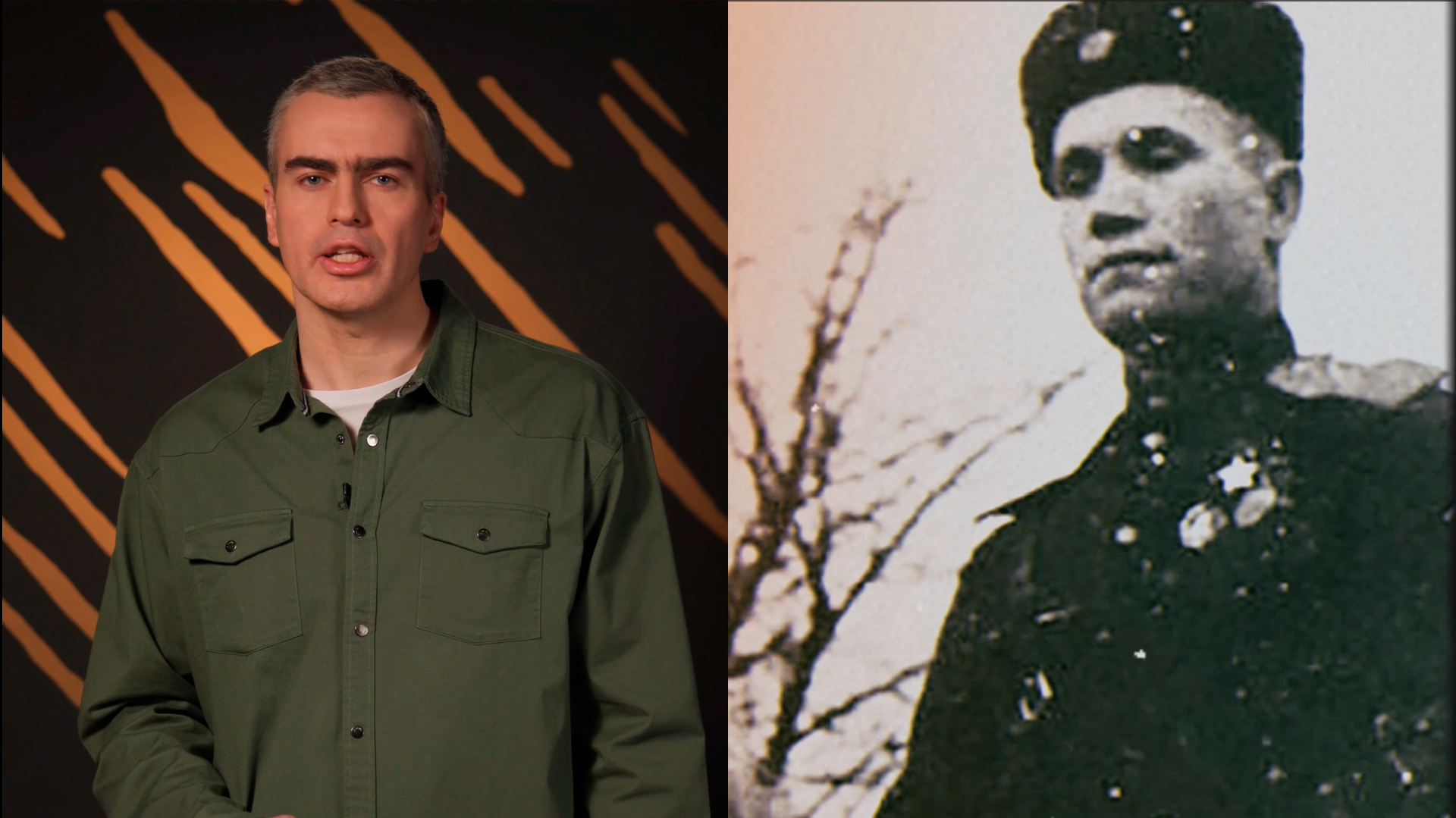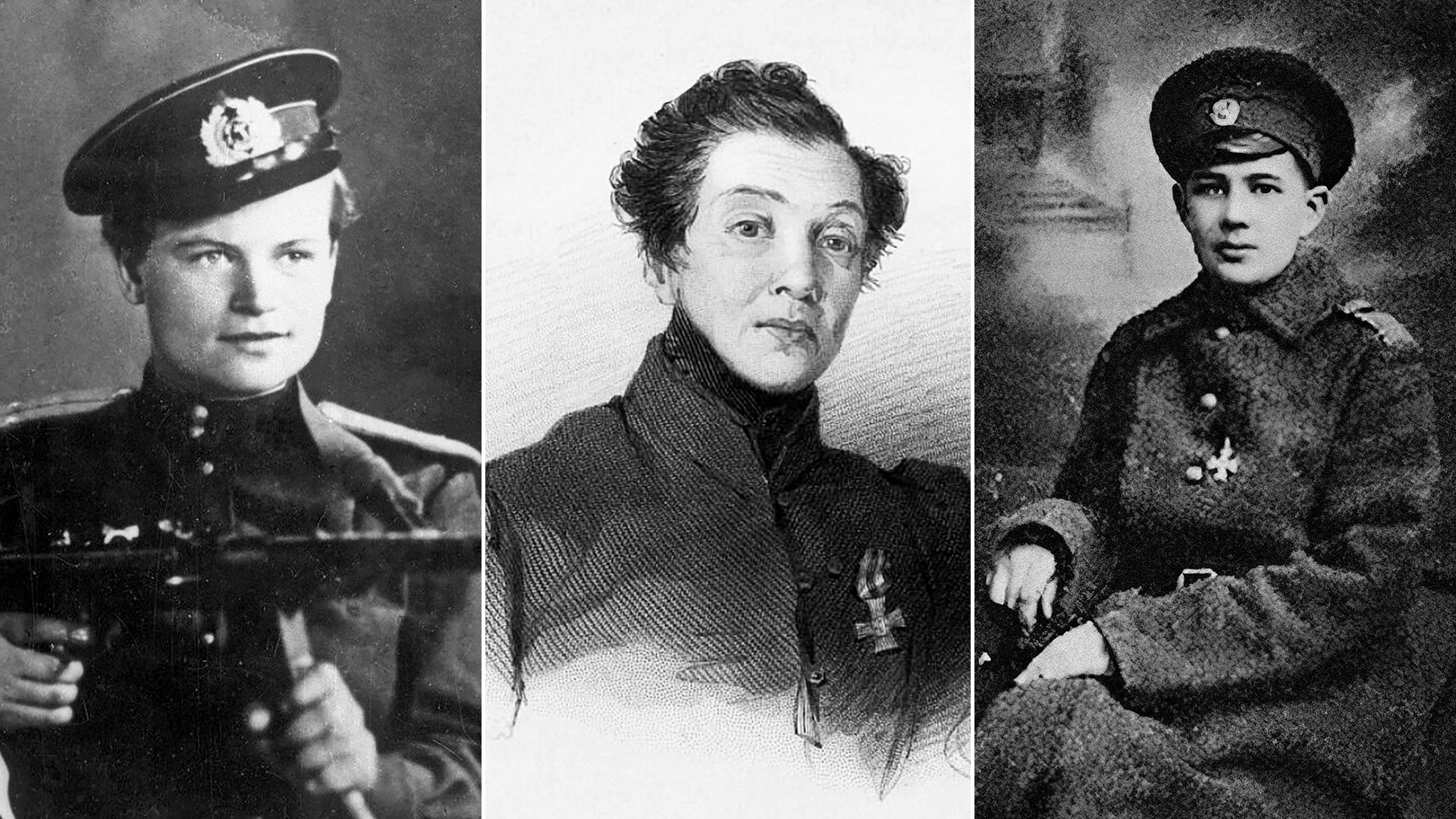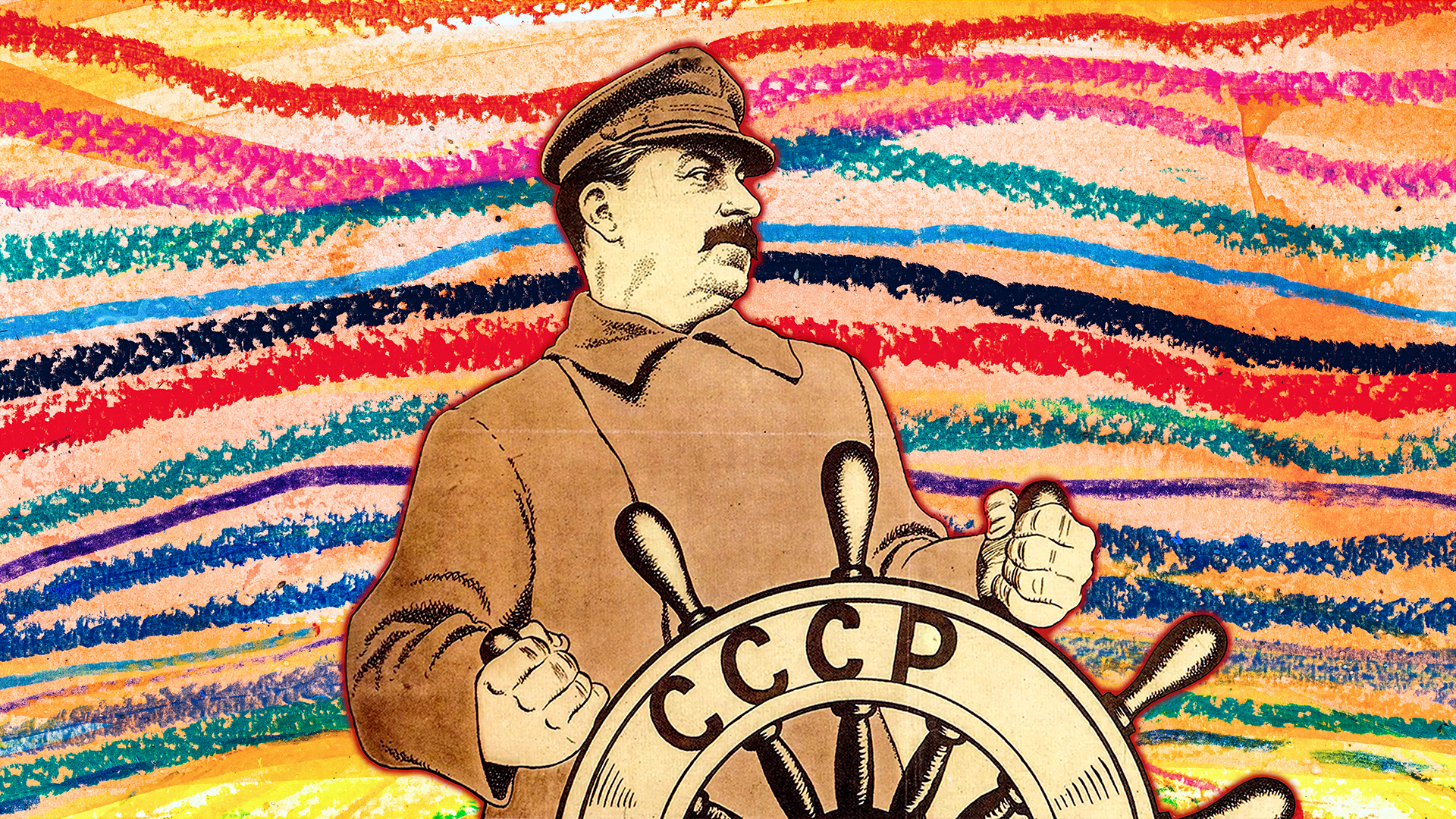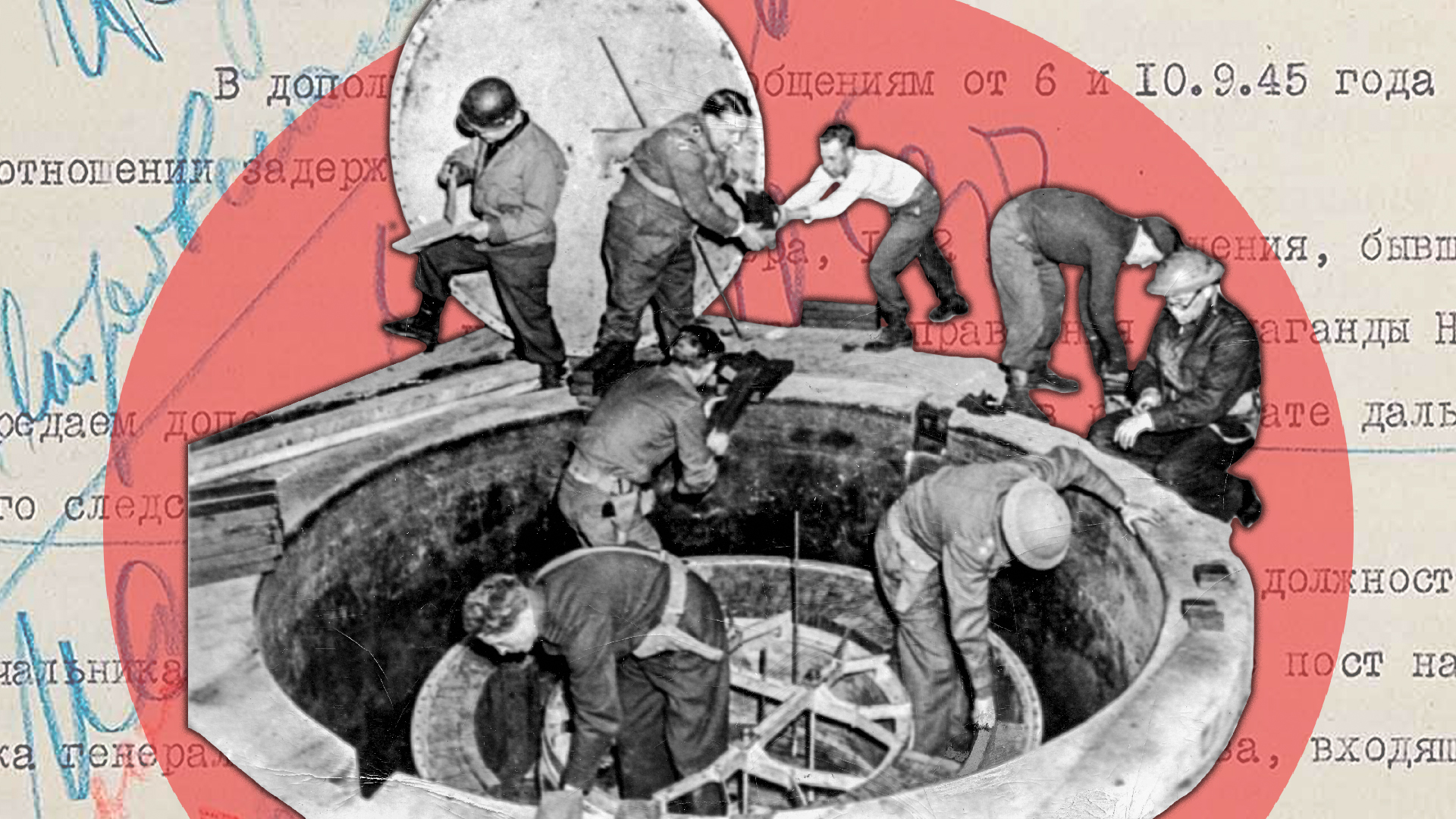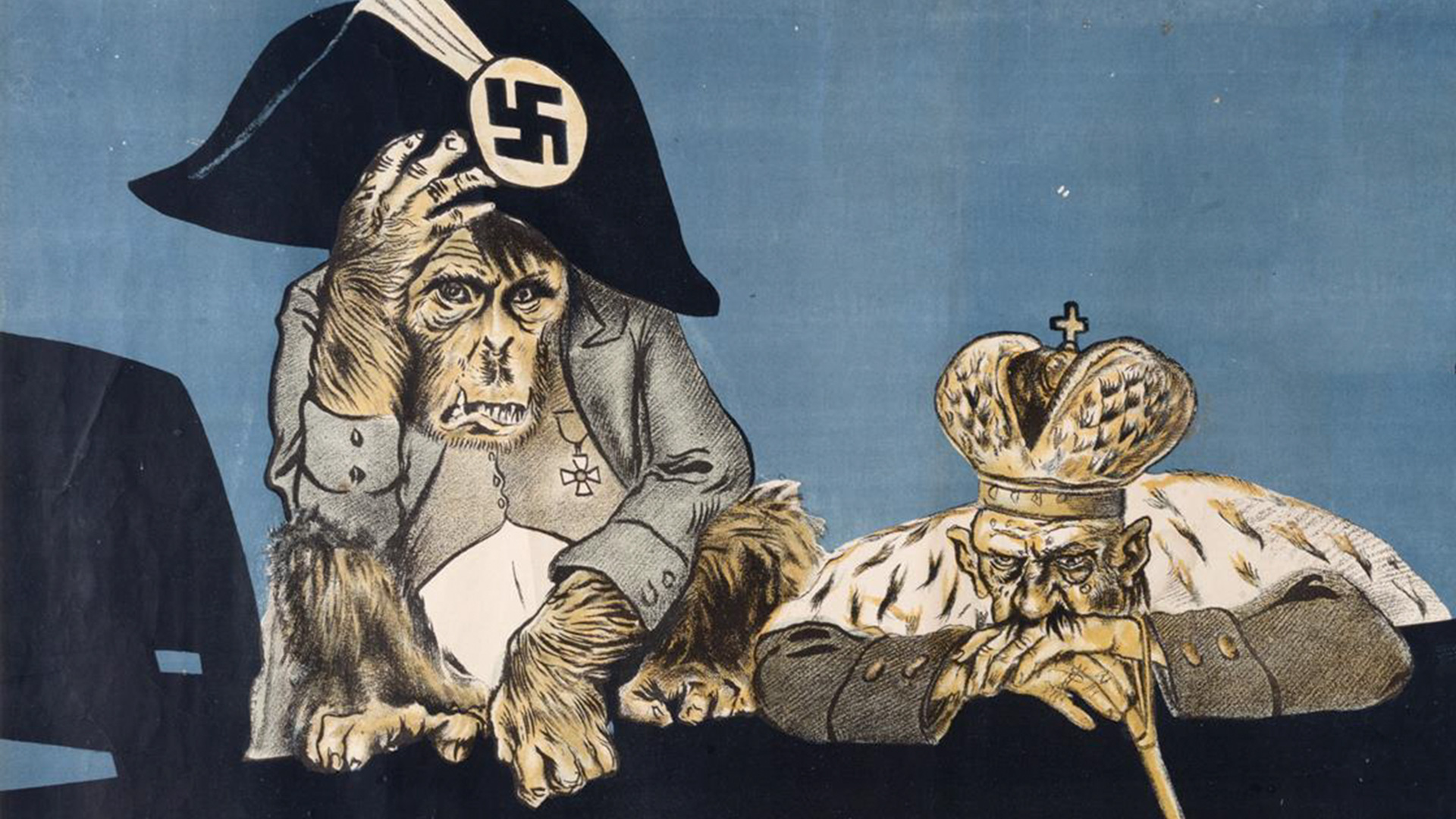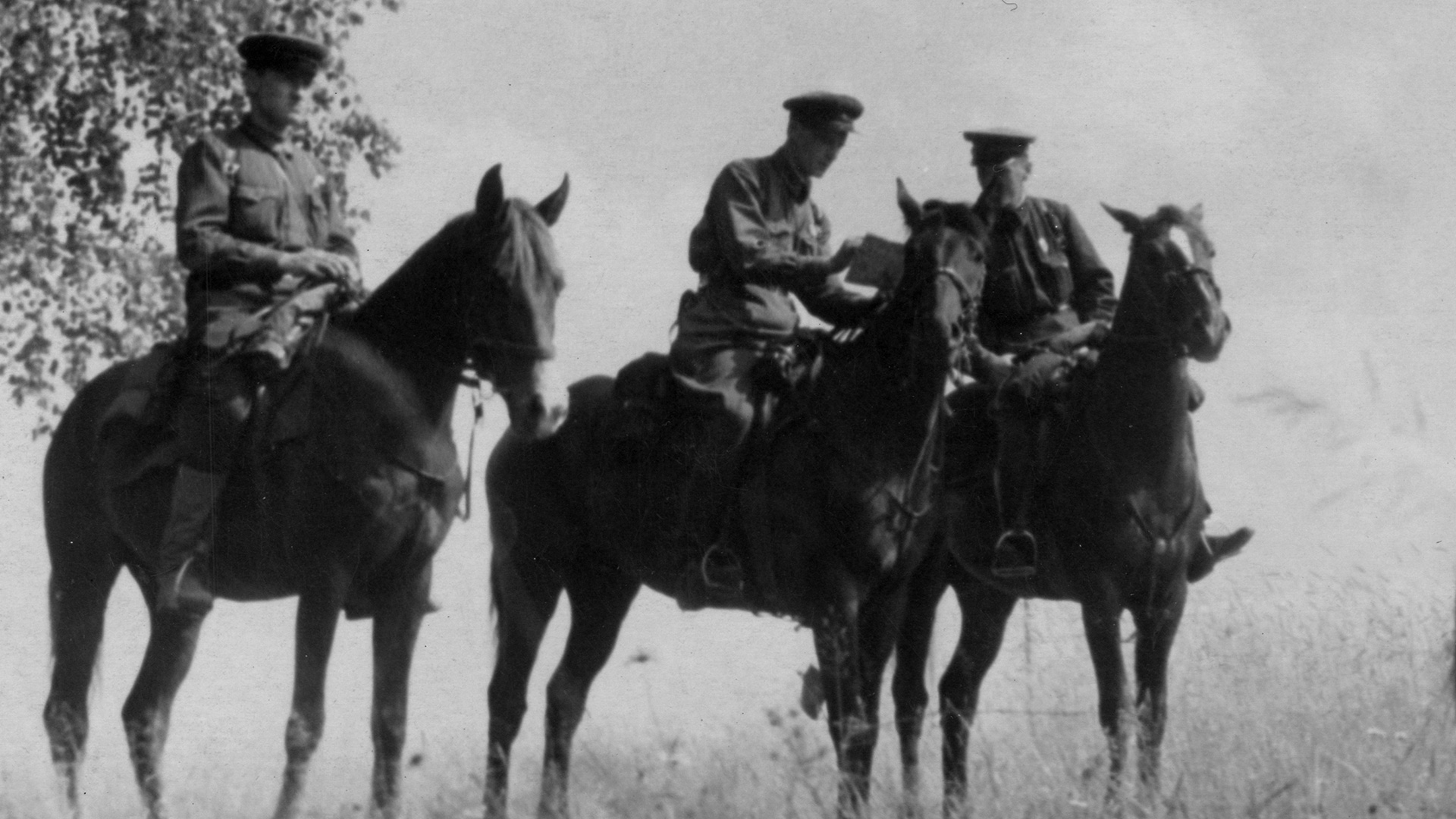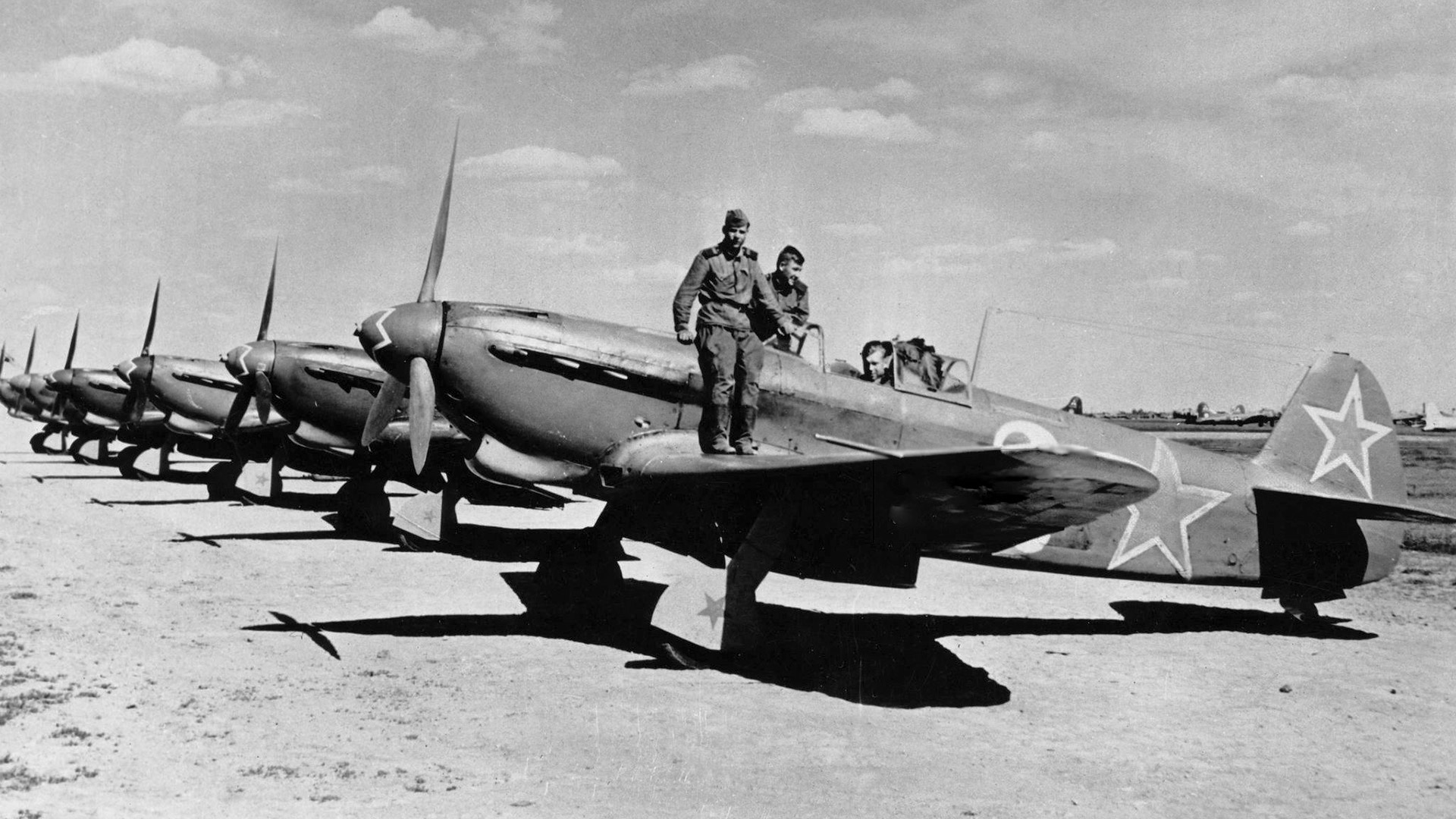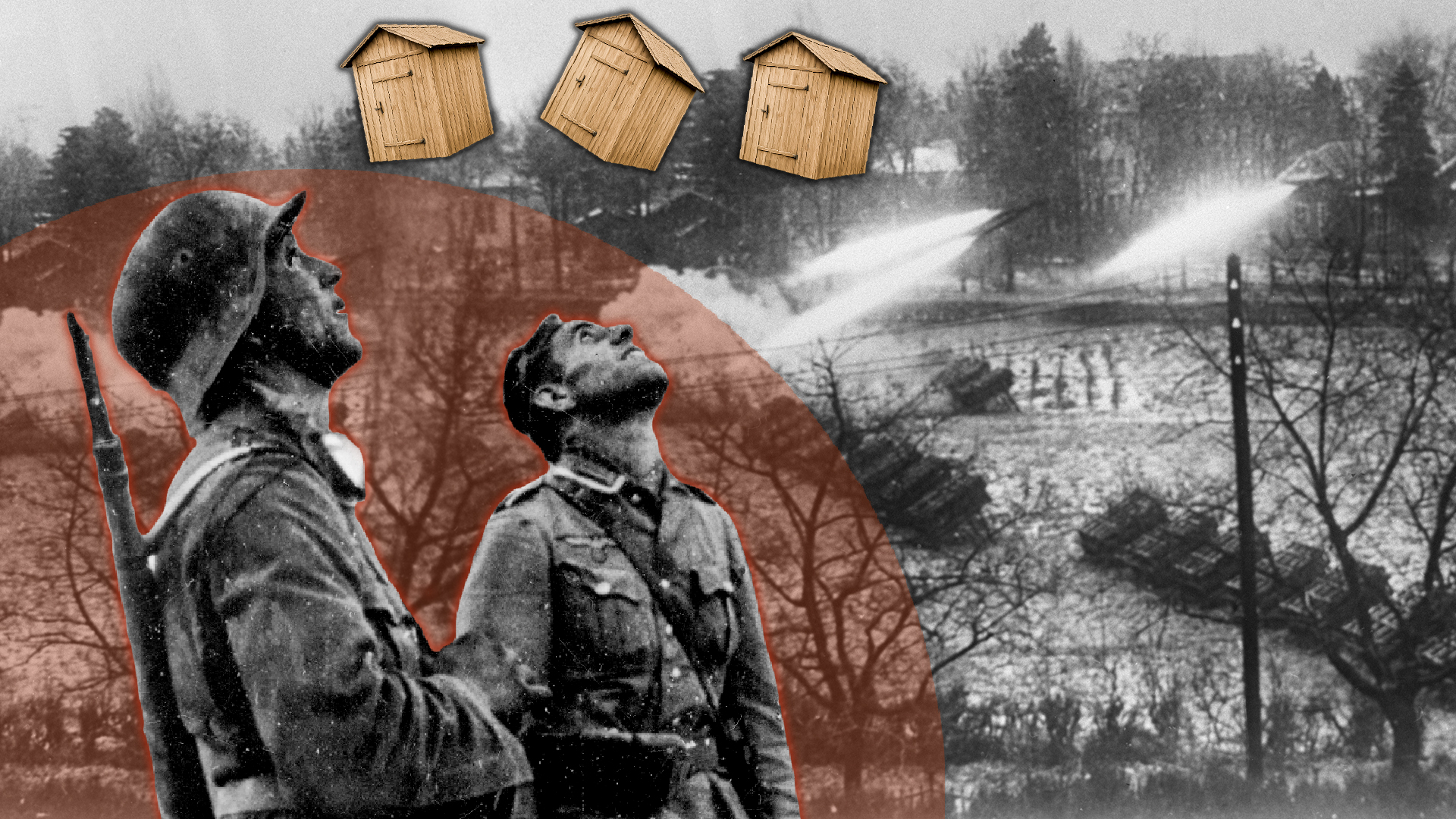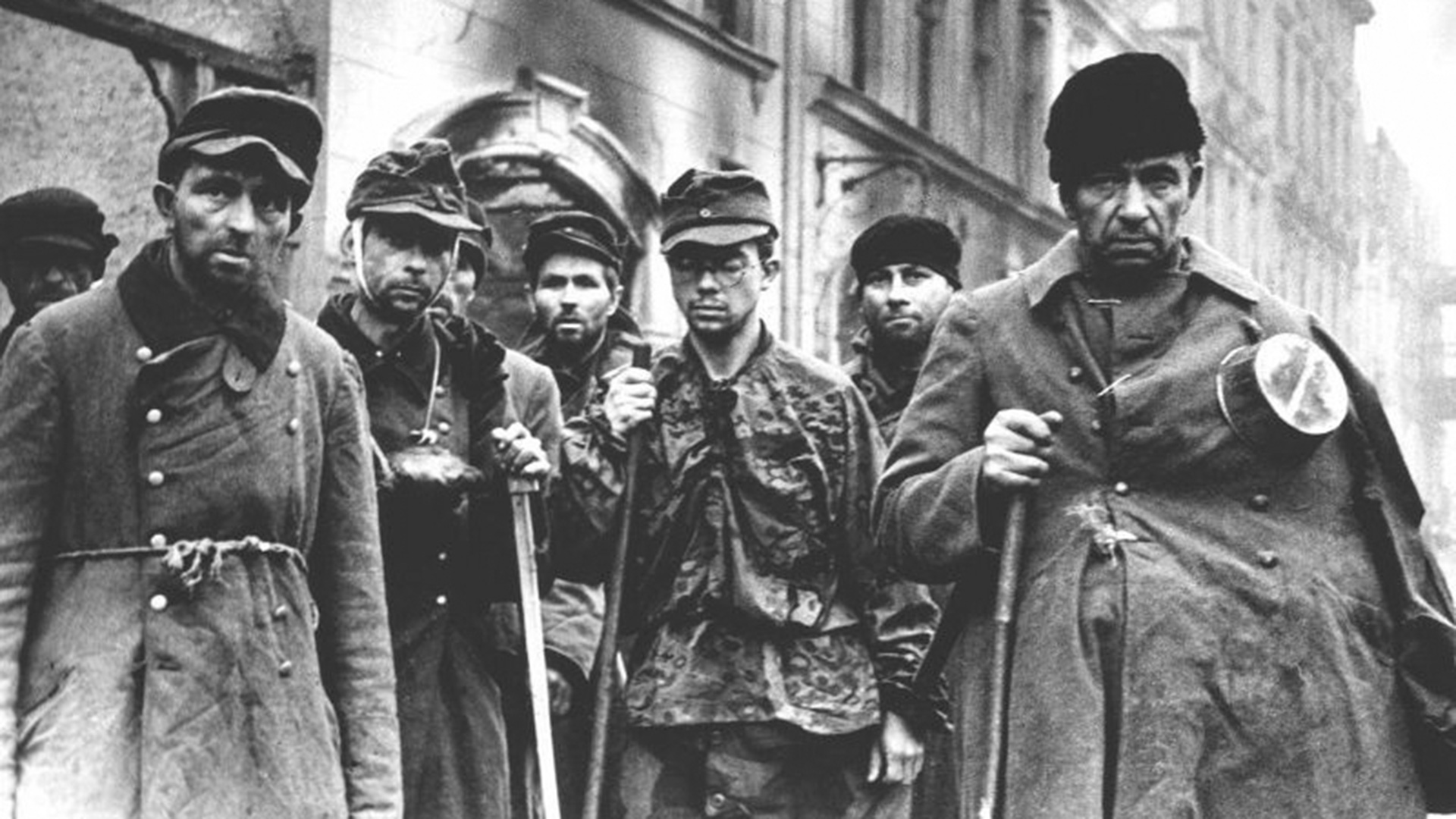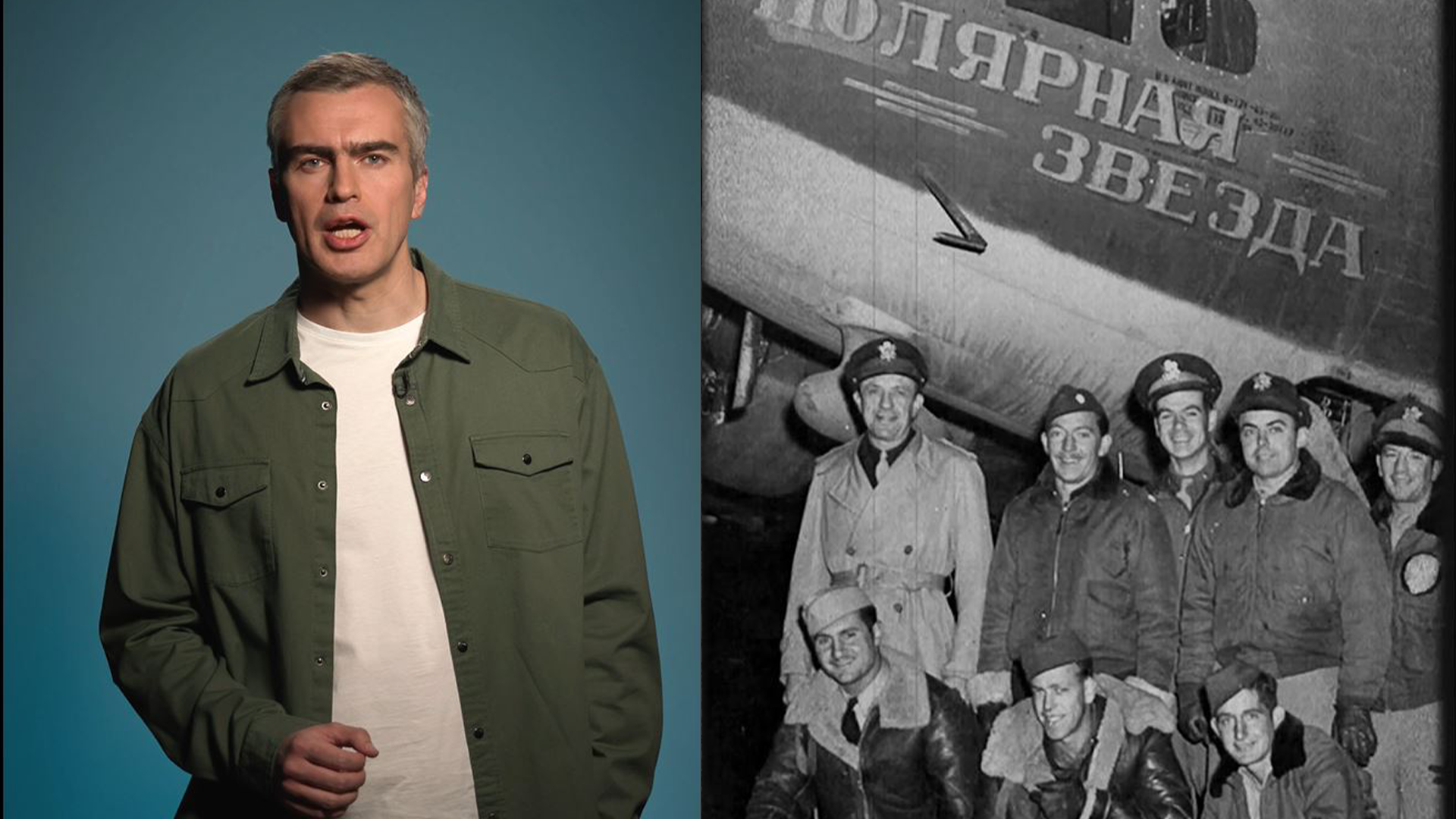
10 cities that the Red Army liberated already in 1941

1. Kalinin (Tver)
 The first German flags captured in the battles for the liberation of Kalinin.
The first German flags captured in the battles for the liberation of Kalinin.
The German troops of Army Group ‘Center’ entered Kalinin on October 14, 1941, and, three days later, took it completely under their control. During the entire occupation, the front line passed in close proximity to the city and Soviet troops made several attempts to recapture it.
Kalinin was liberated on December 16 during a large-scale counteroffensive of the Red Army near Moscow, which began on December 5. The capture of this strategically important point finally buried the Germans' plans to encircle the Soviet capital.
2. Volokolamsk

The Germans took the city on October 27. On December 20, it was liberated by units of the 20th Army under the command of Major General Andrei Vlasov, who defected to the Nazis after he was captured in 1942.
During the occupation, the Germans burned 126 captured Red Army soldiers alive and shot 86 civilians.
3. Mikhailov

The city of Mikhailov came under enemy control on November 24. In it, the Wehrmacht planned to regroup for a further offensive on Ryazan.
However, on December 7, on the third day of a large-scale counteroffensive, the city was liberated by Soviet troops. Moreover, the attack was so unexpected and swift that the Germans abandoned most of their armored vehicles during their hasty retreat.
4. Tarusa

The Nazis held on to Tarusa, which they had occupied at the end of October, for a long time and stubbornly. The city is located at the confluence of two rivers, which helped the enemy create a strong defense.
The offensive on Tarusa began from several directions after a long artillery preparation. On December 19, after several days of bloody battles, Soviet troops liberated the city.
5. Aleksin

The Wehrmacht intended to reach the important Moscow-Tula highway through the city of Aleksin. Despite the stubborn resistance of the Soviet troops, the Germans managed to occupy the city on November 29.
However, the enemy was unable to advance further and On December 17, Aleksin was liberated.
6. Kaluga
 Soviet machine gunners break into the enemy's fortified area near Kaluga.
Soviet machine gunners break into the enemy's fortified area near Kaluga.
The German troops occupied Kaluga on October 12. A mobile group under the command of Major General Vasily Popov was formed to liberate it.
After a 90-kilometer raid, early in the morning of December 21, it unexpectedly reached the outskirts of the city and started fighting. Two days later, the main forces of the 50th Army came to its aid and, on December 30, Kaluga was completely liberated.
7. Belev

During the occupation, which began on October 24, the Germans greatly damaged the city, destroyed many industrial enterprises and residential buildings and cut down the city park for firewood.
On December 31, on New Year's Eve, the Red Army liberated the city. However, the further advance of the Soviet troops was stopped and, until 1943, the front line was only 10 km from the city.
8. Klin
 Red Army soldiers inspect a destroyed German Sd.Kfz. 10/4 anti-aircraft self-propelled gun on Soviet Square in liberated Klin.
Red Army soldiers inspect a destroyed German Sd.Kfz. 10/4 anti-aircraft self-propelled gun on Soviet Square in liberated Klin.
On November 23, German troops bypassed the city of Klin near Moscow from the southwest and northeast. In order to avoid being caught in a "cauldron", units of the Soviet 16th Army left the city.
Later, it was the Red Army that managed to organize a "cauldron" during its counteroffensive: On December 13, the German garrison in Klin was surrounded. However, the enemy refused the offer to surrender. So, on December 15, as a result of a continued assault, the city was completely liberated.
9. Yelets
 Residents of liberated Yelets.
Residents of liberated Yelets.
The occupation of Yelets in the Lipetsk region lasted only five days. But, during this time, the Nazis managed to shoot 77 captured Red Army soldiers, take 300 residents to work in Germany and destroy more than 500 buildings, including a power plant.
On December 7, Soviet troops broke through to the eastern outskirts of the city. On December 8, battles were already underway for its center and, the following day, the city was liberated.
10. Tikhvin
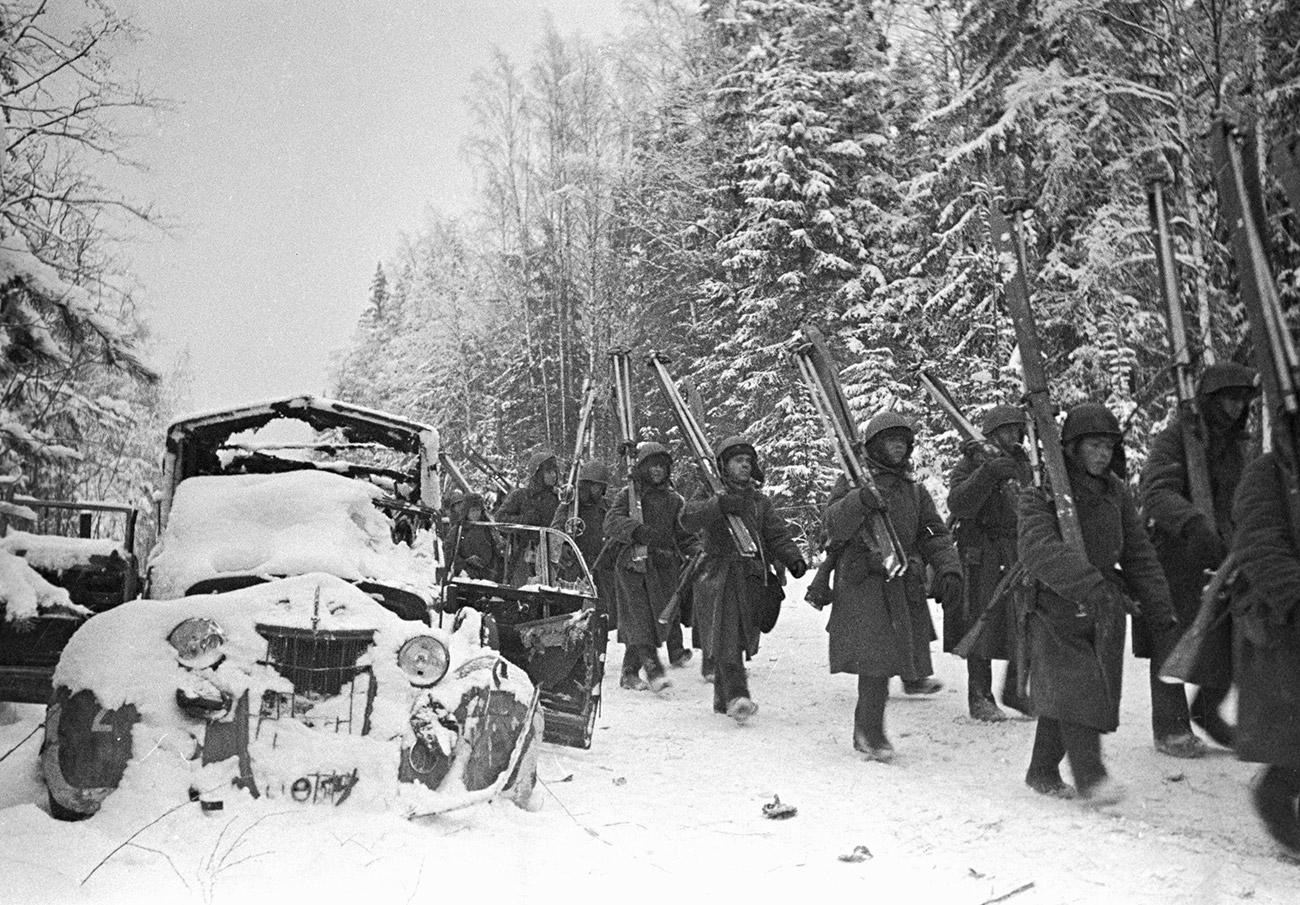 Ski battalion on the march near the city of Tikhvin.
Ski battalion on the march near the city of Tikhvin.
At the end of 1941, most of the cities were liberated during the counteroffensive near Moscow. However, the Red Army also had successes in other areas of the Soviet-German front.
On December 9, the city of Tikhvin in the Leningrad region, which had fallen into German hands on November 8, was liberated. Thus, Soviet troops thwarted German plans to join up with their Finnish allies and completely close the blockade ring around Leningrad. In addition, the route for delivering goods to the besieged city via Ladoga lake had now been shortened by six times.


